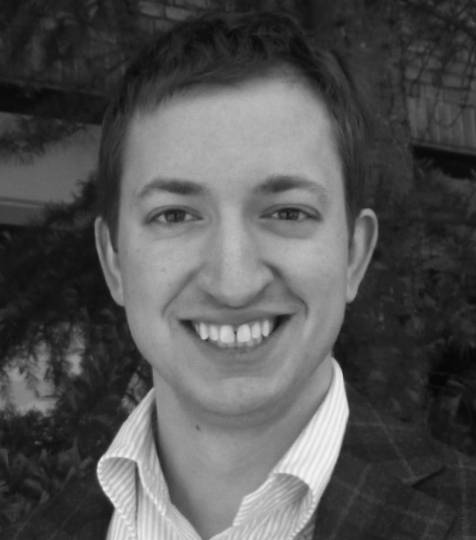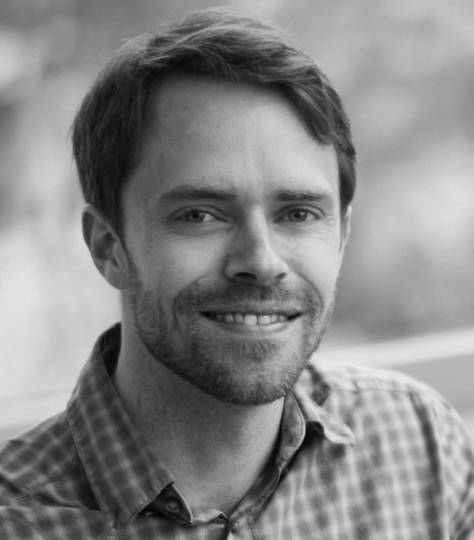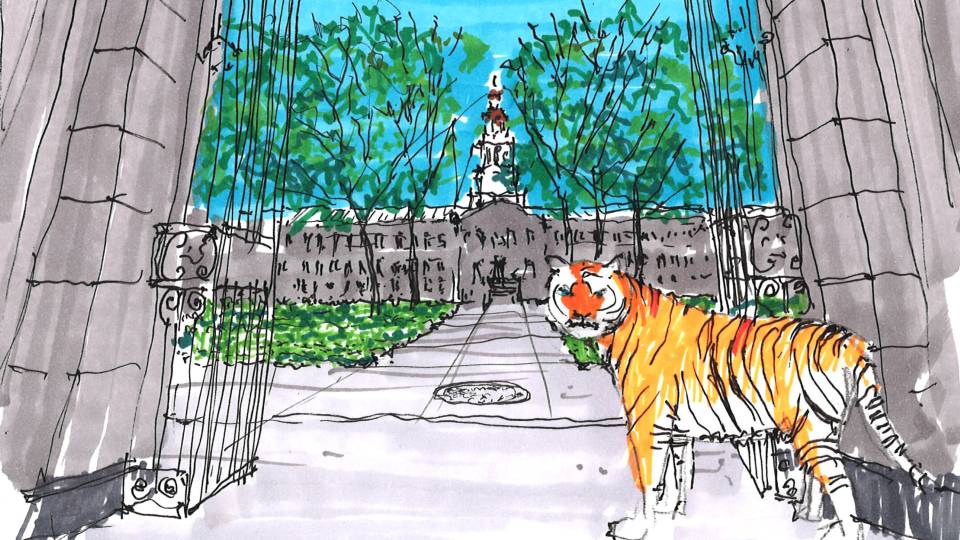The Princeton University chapter of Phi Beta Kappa will present its annual awards for excellence in undergraduate teaching to Alexander Davis, lecturer in the Princeton Writing Program, and Casey Lew-Williams, professor of psychology and director of graduate studies. Davis earned a Ph.D. from Princeton in 2016.
The awards will be presented at a ceremony at 8:45 a.m. Monday, May 23.
The students outline the criteria for excellence in teaching as skill in instruction, commitment to working with and building relationships with undergraduates, and the ability to spark students’ intellectual interests. Each winner is presented with a plaque.
Alexander Davis
Senior Owen Matthews, a concentrator in politics who is also pursuing a program certificate in East Asian studies, met Alexander Davis during her first year at Princeton, when Davis was her academic adviser and writing seminar instructor. Three and a half years later, as Matthews reflected on her college years, she said Davis was the faculty member who most prepared her for the world of research and writing. "Alex set me up for success here, both in terms of academics and personal happiness. I can say he truly changed the trajectory of my Princeton career,' Matthews said.

Alexander Davis
For his seminars, Davis develops resources to teach students strategies for writing about quantitative evidence and made these available to other instructors. “The academic foundation Alex provided my fall semester of my first year has allowed me to gain more from every single one of my subsequent classes, and to feel prepared for conducting independent work in the politics department,” Matthews said.
Davis stays connected to students during their first year and beyond, holding many events at which students can ask questions or reach out for more informal support. He has held pizza nights before a major assignment is due, so students can support each other. During “Forbes Fridays,” Davis is available throughout the morning in the Forbes dining hall, where conversations veer from assignments to career plans to life in general. “Especially as a first-year student, just knowing there is someone at the University who is rooting for you, and who you can turn to, is critical to feeling connected to and able to navigate the University as a whole,” Matthews said.
Davis has a bachelor’s degree from James Madison University and a Ph.D. in sociology from Princeton. His scholarship examines gender, sexuality and social inequality through the lens of cultural and organizational sociology. He has been a lecturer in the Princeton Writing Program since 2016.
Casey Lew-Williams
When senior Richard Yang first arrived at Princeton, Yang asked juniors and senior which classes someone interested in psychology should take. The feedback was unanimous: “Developmental Psychology,” taught by Casey Lew-Williams.

Casey Lew-Williams
Lew-Williams’ mentorship had a profound effect on Yang’s Princeton experience. He “was an extremely kind professor and truly one-of-a-kind,” said Yang, who also took “Developmental Origins of Life Outcomes” with Lew-Williams, served for three years as his research assistant and completed a thesis with him.
Whether it is in class or during his “coffee chats,” Lew-Williams offers students a warm smile and an eagerness to hear about their lives. He “always has his door open for advisees and students and actively takes a role in his students’ research processes,” Yang said. “He does not simply listen to students, but he follows up with questions, which shows how he really does care about his students’ well-being and future aspirations.”
A professor at Princeton since 2014, Lew-Williams earned his undergraduate degree from the University of California-Berkeley, and his Ph.D. from Stanford University. His scholarship focuses on how the mechanisms of infant cognition and the details of environmental experience combine to shape early learning.






















